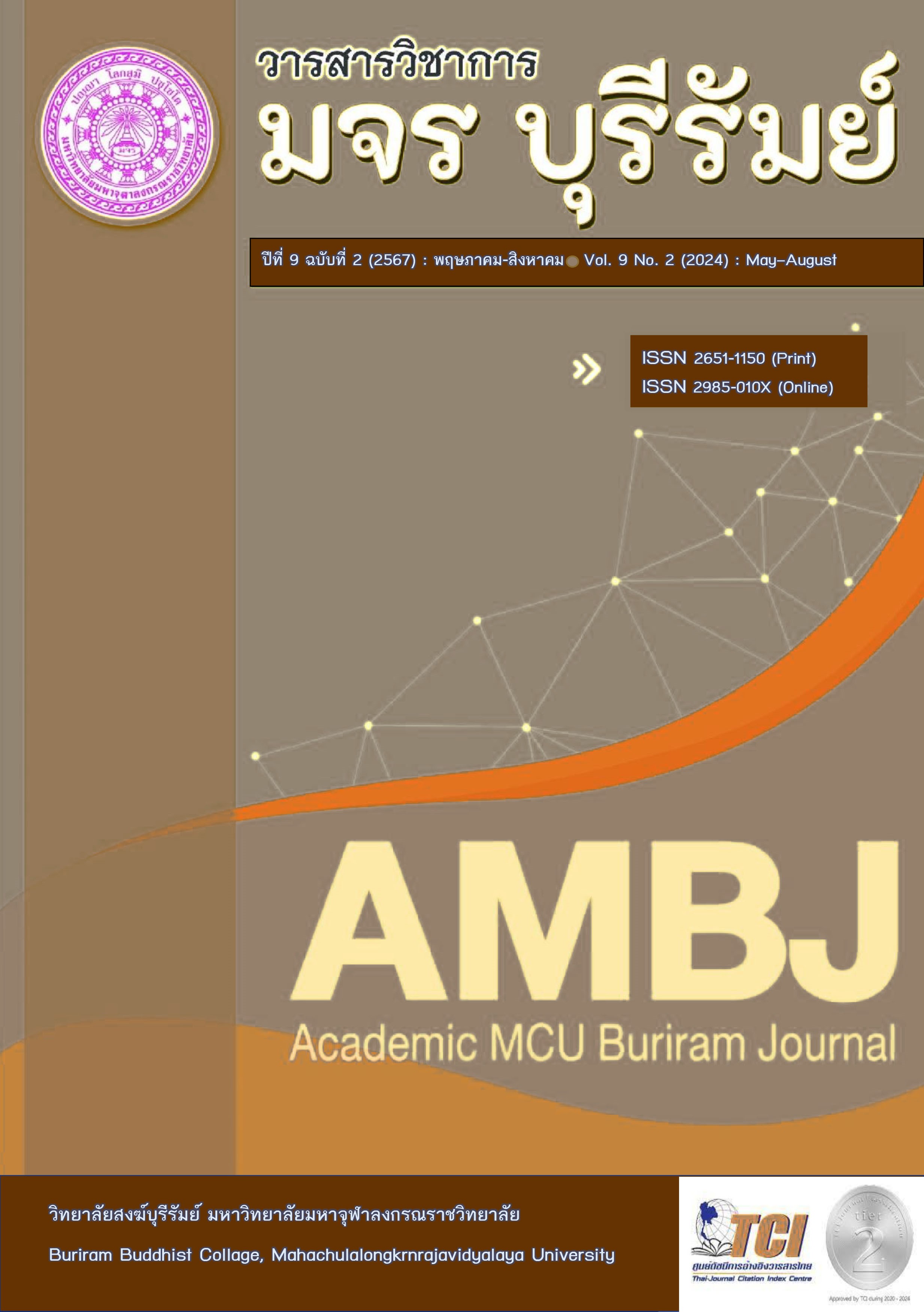Educational Administration of the Future World
Keywords:
Education Administration, The Future WorldAbstract
Abstract
This article aims to provide insights for administrators and the general public on the future of educational administration, contributing to significant advancements for the country and the world because the rapid changes in global society have created a knowledge gap, making it imperative for today's education system to prepare individuals for the future. We must identify the type of educational reform required and determine the characteristics of the personnel needed to meet evolving demands and benefit the country. Modern educational management is crucial and impactful. "Learning," which can occur anytime and anywhere, must be integrated with moral development. As technology and innovation shape the future world, education must inevitably adapt. This necessitates awareness and a paradigm shift in educational administration, grounded in management principles and the philosophy of Sufficiency Economy. Educational leaders must possess the knowledge, understanding, and management skills to navigate changes and achieve success.
References
นพดล เจนอักษร. (2564). กระบวนทัศน์การบริหารการศึกษาในยุคพลิกผัน. วารสาร มจร.พุทธศาสตร์ปริทรรศน์, 5(2), 51-66.
นิลวรรณ วัฒนา. (2566). กระบวนทัศน์ใหม่ในการบริหารการศึกษาแห่งอนาคต. วารสารบริหารการศึกษา มศว, 20(39), 35-48.
ปรีชา เริงสมุทร์. (2565). แนวทางการนำแนวปรัชญาของเศรษฐกิจพอเพียงประยุกต์ใช้ในการบริหารการศึกษา. เข้าถึงได้จาก https://www.trueplookpanya. com/blogdiary/26537 (สืบค้นเมื่อ 22 พฤษภาคม 2567).
ปรียนุช ธรรมปิยา. (2566). คู่มือครูปรัชญาของเศรษฐกิจพอเพียง. เข้าถึงได้จาก https://online.pubhtml5.com/uuae/rezi/#p=3 (สืบค้นเมื่อ 2 พฤษภาคม 2567).
มลฤดี เพ็งสง่า. (2566). การบริหารสถานศึกษายุคดิจิทัล. วารสารวิชาการศึกษาศาสตร์ ศรีนครินทรวิโรฒ, 24(2), 162-175.
มัทนา วังถนอมศักดิ์. (2566). เอกสารประกอบการสอนรายวิชาหลักและทฤษฎีการบริหารการศึกษา. มหาวิทยาลัยศิลปากร.
วิจารณ์ พานิช. (2566). บทสัมภาษณ์ศาสตราจารย์ นายแพทย์วิจารณ์ พานิช. เข้าถึงได้จาก https://www.aksorn.com/ac-education-summary-ep19 (สืบค้นเมื่อ 22 พฤษภาคม 2567).
สถาพร พฤฑธิกุล. (2560). การบริหารการศึกษากับการเปลี่ยนแปลงในศตวรรษที่ 21. วารสารศึกษาศาสตร์, 28(2), 36-49.
สุรศักดิ์ ปาเฮ. (2566). กระบวนทัศน์เทคโนโลยีการศึกษายุคดิจิทัล. พิมพ์ครั้งที่ 2. ลำปาง: โรงพิมพ์คานา.
สุวิมล มธุรส. (2564). การจัดการศึกษาในระบบออนไลน์ในยุค NEW NORMAL COVID-19. วารสารรัชตภาคย์, 15(40), 120-138.
Barzelay, M. (1992). Breaking through bureaucracy: A new vision for managing in government. Los Angeles: University of California Press.
Thitipattakul., N. (2566). Education 2030 - อนาคตการศึกษาในอีก 10 ปีข้างหน้า. เข้าถึงได้จาก https://www.disruptignite.com/blog/education2030 (สืบค้นเมื่อ 3 มิถุนายน 2567).
Thomas S. Kuhn. (1970). The Structure of Scientific Revolutions, 2nd ed. (Chicago: University of Chicago Press) Retrieved from https://www. lri.fr/~mbl/Stanford/CS477/papers/Kuhn-SSR-2ndEd.pdf (Accessed September 20, 2023).
Downloads
Published
How to Cite
Issue
Section
License
Copyright (c) 2024 Academic MCU Buriram Journal

This work is licensed under a Creative Commons Attribution-NonCommercial-NoDerivatives 4.0 International License.
ทัศนะและความคิดเห็นที่ปรากฏในบทความวารสารฉบับนี้ถือเป็นความรับผิดชอบของผู้เขียนบทความนั้น ไม่ถือเป็นทัศนะและความรับผิดชอบของบรรณาธิการ





